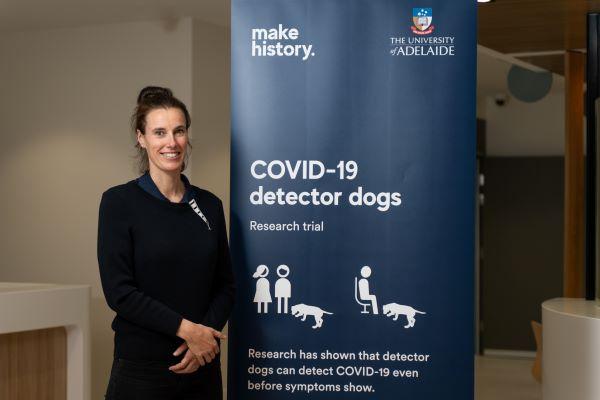A team of COVID-19 detector dogs have started screening for the virus at Lyell McEwin Hospital in Adelaide, South Australia (SA) as part of a six-week pilot study.
Trained by the University of Adeliade’s School of Animal and Vetinary Sciences, the four labradors and their handlers from SA Pathology will be stationed at the Emergency Dapartment (ED), with two dogs on site at a time.





